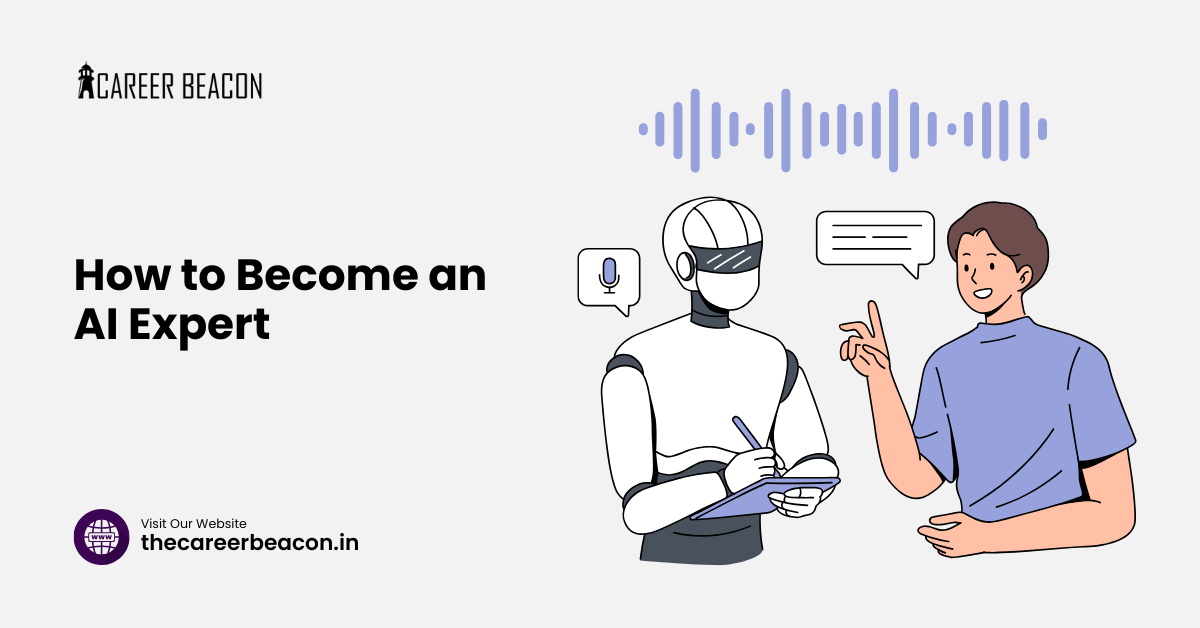
How to Become an AI Expert
Let’s be real—AI is taking over the world.
From self-driving cars to smart assistants like Siri and Alexa, AI is shaping our daily lives in ways we never imagined. And the best part?
You don’t need a high-end degree from an Ivy League school to jump into this field.
Yes, you heard that right! AI is one of those rare fields where skills matter more than degrees. So, if you’re curious about AI and want to make a career out of it, let’s break it down step by step.
Why AI is the Career of the Future
AI is everywhere—in healthcare, finance, e-commerce, entertainment, and even agriculture. Businesses are using AI to make smarter decisions, automate tasks, and improve customer experiences. This has led to a massive demand for AI professionals.
The job opportunities? Endless. AI engineers, data scientists, machine learning experts, automation specialists—you name it! The salaries? Insane. AI professionals are among the highest-paid in the tech world.
If you’re wondering “Where do I even start?”, don’t worry—I’ve got you covered!
How to Become an AI Expert (Even Without a Tech Background!)
AI might sound complex, but if you approach it one step at a time, it’s totally doable. Here’s how:
1. Build a Strong Foundation (No, You Don’t Need to Be a Math Genius!)
AI is based on mathematics, statistics, and coding, but don’t let that scare you. You don’t need to be a math whiz—just a basic understanding of linear algebra, calculus, and probability will do. Websites like Khan Academy and Brilliant.org explain these concepts in a super simple way.
As for coding, Python is king in AI. If you don’t know Python yet, start with free courses on Codecademy, Coursera, or Udemy.
2. Learn AI and Machine Learning (Without Spending a Fortune!)
Once you’re comfortable with math and Python, dive into AI and machine learning. There are tons of free and affordable resources:
- Andrew Ng’s Machine Learning Course (Coursera) – The holy grail of AI learning
- Google AI’s Free Crash Course – Learn from the people who built AI-powered search
- Fast.ai’s Deep Learning Course – Perfect for beginners
You don’t need to take all of them—just pick one and stick with it!
3. Work on Real-World AI Projects (Because Theory Alone Won’t Cut It!)
AI is a skill-based field, meaning employers want to see what you can build. The best way to prove yourself? Projects!
Here are some beginner-friendly AI project ideas:
- Build a chatbot using Python
- Create an image recognition model
- Make a music recommendation system
- Develop a fake news detector
Join platforms like Kaggle (an AI competition site) to work on real datasets and improve your skills.
4. Get Certified (It Boosts Your Resume!)
While degrees aren’t necessary, certifications help you stand out. Here are some of the best AI certifications:
IBM AI Engineering Certificate
Google TensorFlow Developer Certification
Microsoft AI Fundamentals
These show employers that you’re serious about AI.
Network with AI Professionals (Because Connections Matter!)
Learning alone can be overwhelming, so connect with AI communities. Join AI groups on LinkedIn, Discord, and Reddit, attend AI conferences, and engage in discussions.
Follow AI influencers like Andrew Ng, Yann LeCun, and Fei-Fei Li on Twitter to stay updated with the latest trends.
The Future of AI Careers
AI isn’t just a trend—it’s the future. And the best time to get started? Right now!
With companies pouring billions into AI research and development, the demand for skilled AI professionals will only grow. Whether you’re a student, a working professional, or just a tech enthusiast, you can carve your own path in AI.
Final Thoughts: Just Start!
If AI excites you, don’t overthink it—just start learning! You don’t need a PhD, an expensive degree, or years of experience. All you need is curiosity, consistency, and a willingness to learn.


